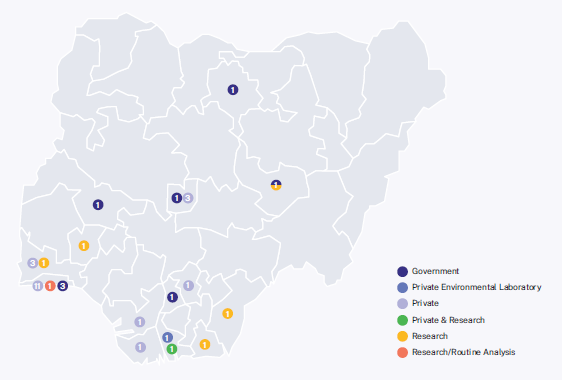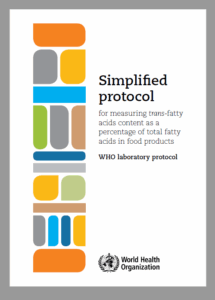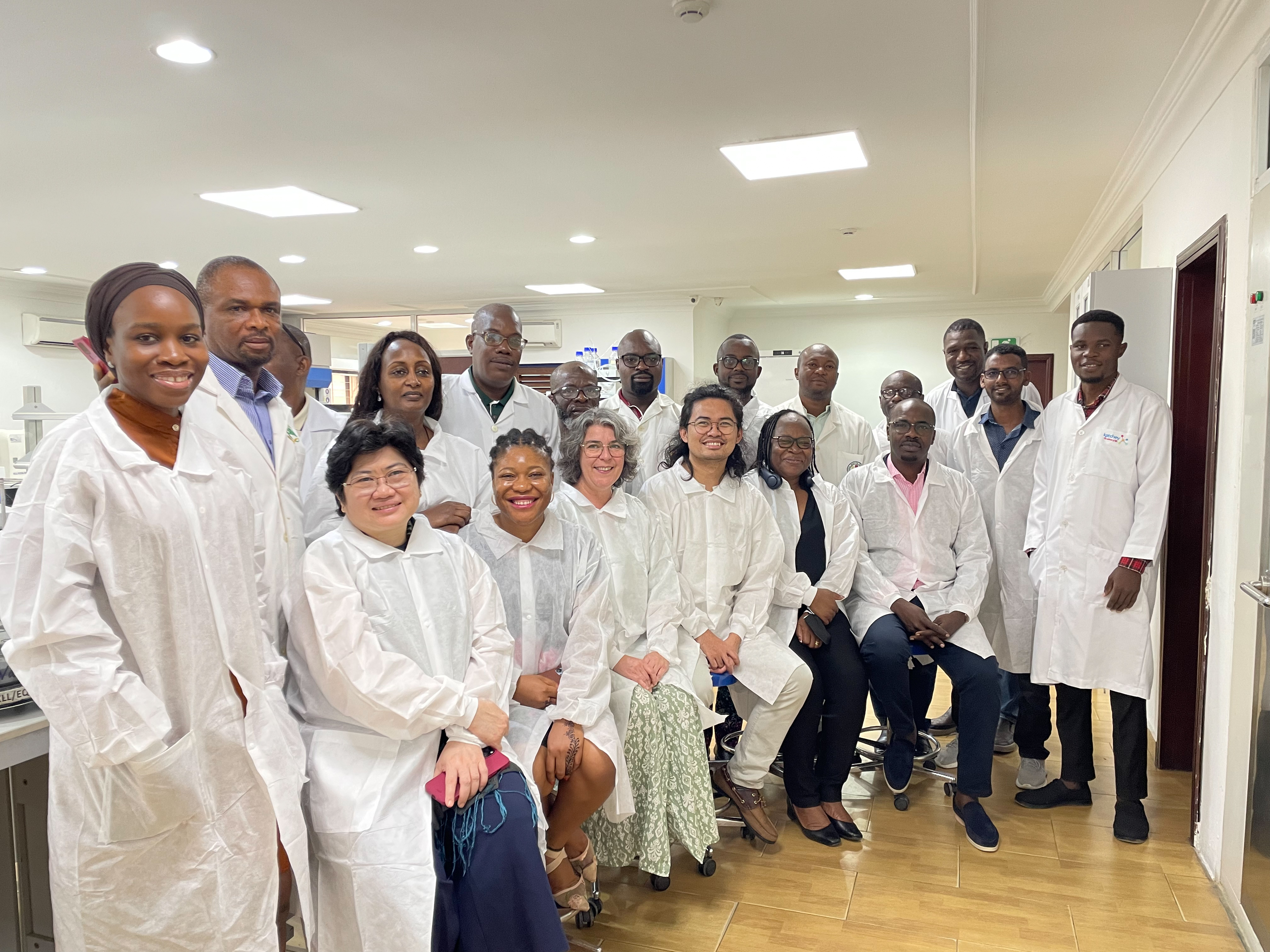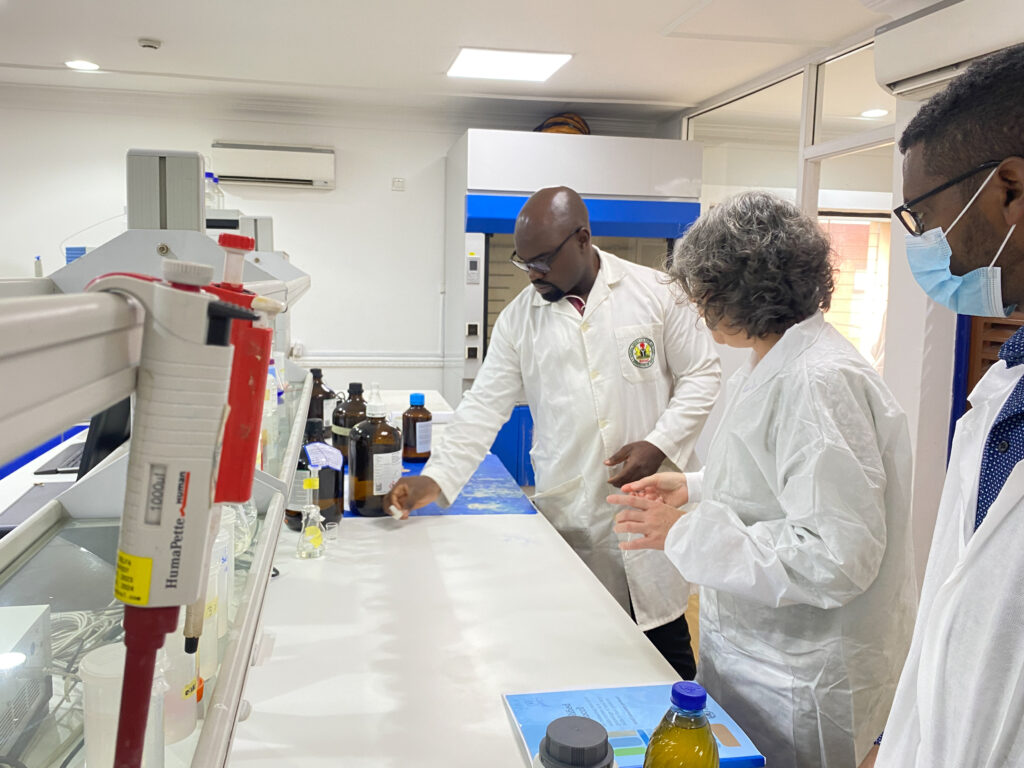The challenge
Nigeria’s 2023 trans fat ban was a huge step forward for heart health, but a national assessment revealed challenges for implementation and enforcement: gaps in laboratory capacity and a lack of a standard protocol for assessing trans fat content in foods.
The solution
The Federal Ministry of Health and Social Welfare and the World Health Organization, along with Resolve to Save Lives, supported laboratories across Nigeria to procure necessary equipment and train laboratory technicians to measure trans fat content in various foods.
The impact
Nigeria is ready to effectively implement and sustainably enforce its policy to ban trans fat—and be a leader in establishing a trans fat-free Africa.
Gaps in laboratory resources challenge implementation
When Nigeria passed a new policy to ban trans fat from the national food supply in 2023, they made history as the second African country to have a best practice trans fat elimination policy. Championed by Nigeria’s National Agency for Food and Drug Administration and Control (NAFDAC), with support from the World Health Organization (WHO), Resolve to Save Lives (RTSL), and other partners, this policy proved Nigeria’s commitment to making healthy food more accessible to all and helping rid the world of toxic trans fat, which is estimated to cause more than half a million deaths every year.
Trans fat (also called trans fatty acid or TFA) is shown to increase the risk of heart attack and death. As the most populous country in Africa, Nigeria’s trans fat elimination policy in action could help save 1,200 lives per year.
But passing the policy was only the beginning. As NAFDAC and its partners, including RTSL, began developing an implementation plan, it became clear that successful enforcement depended on measuring trans fat content in foods to confirm they were in line with regulatory standards. With the support of RTSL, NAFDAC conducted a national assessment of government, private, and academic research laboratories to determine the type of resources that currently existed to do this work.

The assessment results showed that policymakers and partners had underestimated the resources needed to measure trans fat content, such as specialized lab equipment, existing capacity, including the number of technicians trained on a standardized testing protocol.
Strengthening capacity to meet the moment
The team used the assessment to develop an action plan. Prioritizing the most urgent and immediate gaps, they got to work finding sustainable solutions.
1) Procuring specialized equipment to measure trans fat content
Many laboratories in Nigeria lacked the equipment necessary for measuring trans fat content—including government laboratories that would need to conduct this testing to confirm the food industry was meeting new regulatory standards. Without this capacity, it would be impossible to enforce the new policy, so RTSL stepped in to help procure missing equipment and supplies for three government laboratories identified by the assessment as most central to the implementation of the policy.
2) Identifying a standardized protocol across laboratories
Because laboratories constantly refine and improve their protocols, not all laboratories were measuring trans fat content in the same way. However, to enforce the new national policy, and maintain the highest standard possible, NAFDAC needed all labs to adopt a standardized, evidence-based protocol.

Representatives from government and private sector laboratories, including NAFDAC, RTSL, the Institute of Public Analysts of Nigeria (IPAN), and the Standards Organization of Nigeria (SON), selected a simplified testing protocol developed by WHO that was feasible across different types of labs, including those with limited resources. Using this streamlined method would support Nigeria’s laboratories to accurately measure trans fat content, monitor compliance with the new regulation, and compare their findings with each other and others across the globe.
3) Training laboratory technicians to analyze results
In the fall of 2024, an initial training on the selected WHO protocol was conducted for technicians from three government and three private laboratories across Nigeria, selected as most ready and critical to the implementation of the policy. RTSL provided strategic coordination and partial funding for this training, which included both virtual and in-person instruction. Feedback from the initial training participants was positive, with many saying the training exceeded their expectations.
“The training on TFA measurement was an enriching and enlightening experience. The expert trainers were approachable and made learning and understanding the WHO Simplified Protocol seamless. RSTL personnel made sure we were very comfortable. It was time well spent, and I now feel more equipped to take on the task of testing for TFA in samples.” – Kaka Mustapha – Principal Regulatory Officer, NAFDAC.
After these sessions, participants were asked to put what they learned into immediate action by completing independent tests at their home laboratories and providing their results for review by WHO trainers. This follow-up has allowed technicians to move beyond simply using the protocol to developing quality assurance practices that will strengthen accuracy within and across laboratories.

Sustainable enforcement
Since the initial WHO protocol training, two of the selected three government laboratories are fully equipped for testing trans fat content, with the remaining laboratory receiving additional support from RTSL to become fully equipped. The private labs need to make additional investments before they are ready, but this is expected to happen once the policy takes full effect and demand for testing increases.
The team plans to continue this forward progress by establishing a standardized training program, including a train the trainer model, and embedding it into the continuing education pipeline for laboratory technicians. They also plan to develop a quality assurance program to set universal standards and practices for testing trans fat content and support the reliability of test results across laboratories.
The biggest remaining challenge is generating enough demand for trans fat testing that laboratories across the country see building their testing capacity as a worthwhile investment. By including a diverse set of partners and stakeholders from across government and private industry in their efforts from the start, the team hopes to foster shared pathways for adequate and continued demand of trans fat testing services.
Throughout this work, Nigeria sets an example for other countries in Africa and around the world of how to effectively put policy into action, prepare for sustainable success, and what is possible when you have a clear goal and a realistic view of where you are and where you need to go. By doing this, they confirm their commitment to eliminating trans fat to protect heart health and move closer to a future trans fat-free Africa.
Lab work is science in motion. We are learning as we are going. This is a marathon, not a sprint. We’re not looking to have all the results in one day. But what are the step-by-step achievements that we can say we’re building?
Celestina Obiekea Senior Technical Advisor, Laboratory Systems in Nigeria for Resolve to Save Lives
